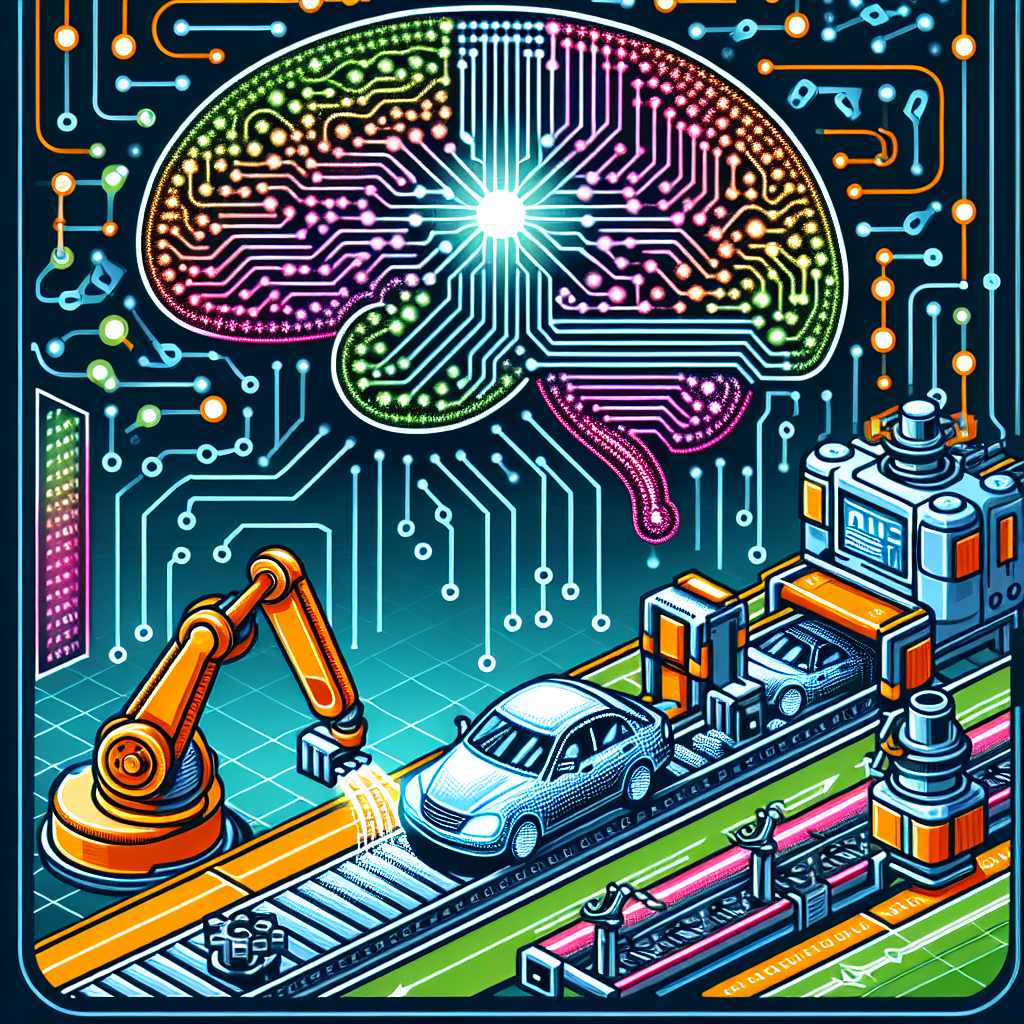The Impact of AI on Smart Manufacturing
Introduction
Artificial Intelligence (AI) has transformed various industries, and smart manufacturing is no exception. Smart manufacturing refers to the use of advanced technologies like AI, Internet of Things (IoT), and big data analytics to optimize manufacturing processes and improve efficiency. AI plays a crucial role in smart manufacturing by enabling machines to learn and adapt, leading to faster production, better quality control, and reduced operational costs. In this article, we will explore the impact of AI on smart manufacturing and how it is revolutionizing the industry.
AI Applications in Smart Manufacturing
AI is being used in smart manufacturing in various ways to streamline processes and improve productivity. Some of the key applications of AI in smart manufacturing include:
1. Predictive Maintenance: AI algorithms can analyze data from sensors and machines to predict when equipment is likely to fail. This allows manufacturers to schedule maintenance before a breakdown occurs, minimizing downtime and reducing maintenance costs.
2. Quality Control: AI can be used to detect defects in products by analyzing images and data from production processes. This helps manufacturers identify and address quality issues early, ensuring that only high-quality products are shipped to customers.
3. Production Optimization: AI can optimize production processes by analyzing data in real-time and making adjustments to improve efficiency. For example, AI can adjust machine settings to maximize output while minimizing energy consumption.
4. Supply Chain Management: AI can optimize supply chain operations by analyzing data on demand, inventory levels, and production capacity. This allows manufacturers to make data-driven decisions to meet customer demand while minimizing costs.
5. Inventory Management: AI can help manufacturers optimize inventory levels by analyzing historical data and demand forecasts. This ensures that manufacturers have the right amount of raw materials and finished goods on hand, reducing storage costs and improving cash flow.
Benefits of AI in Smart Manufacturing
The use of AI in smart manufacturing offers a wide range of benefits, including:
1. Increased Efficiency: AI can automate routine tasks and optimize processes, leading to faster production and reduced operational costs.
2. Improved Quality: AI can detect defects and anomalies in products early, ensuring that only high-quality products are shipped to customers.
3. Reduced Downtime: Predictive maintenance using AI can help manufacturers schedule maintenance before equipment fails, minimizing downtime and maximizing productivity.
4. Cost Savings: AI can help optimize production processes, inventory management, and supply chain operations, leading to cost savings for manufacturers.
5. Greater Flexibility: AI can adapt to changing production requirements and market conditions, allowing manufacturers to respond quickly to demand fluctuations.
FAQs
1. What is the role of AI in smart manufacturing?
AI plays a crucial role in smart manufacturing by enabling machines to learn and adapt, leading to faster production, better quality control, and reduced operational costs.
2. How does AI improve efficiency in manufacturing processes?
AI can automate routine tasks, optimize processes, and analyze data in real-time to improve efficiency in manufacturing processes.
3. What are some common applications of AI in smart manufacturing?
Some common applications of AI in smart manufacturing include predictive maintenance, quality control, production optimization, supply chain management, and inventory management.
4. What are the benefits of using AI in smart manufacturing?
The benefits of using AI in smart manufacturing include increased efficiency, improved quality, reduced downtime, cost savings, and greater flexibility.
5. How can manufacturers implement AI in their operations?
Manufacturers can implement AI in their operations by investing in AI technologies, training their workforce, and collaborating with AI experts and vendors.
Conclusion
AI is revolutionizing the manufacturing industry by enabling smart manufacturing processes that are more efficient, productive, and cost-effective. By leveraging AI technologies, manufacturers can optimize production processes, improve quality control, and enhance supply chain operations. The benefits of using AI in smart manufacturing are numerous, and companies that embrace AI are likely to gain a competitive edge in the market. As AI continues to evolve, its impact on smart manufacturing is expected to grow, leading to even more innovative and efficient manufacturing processes.

